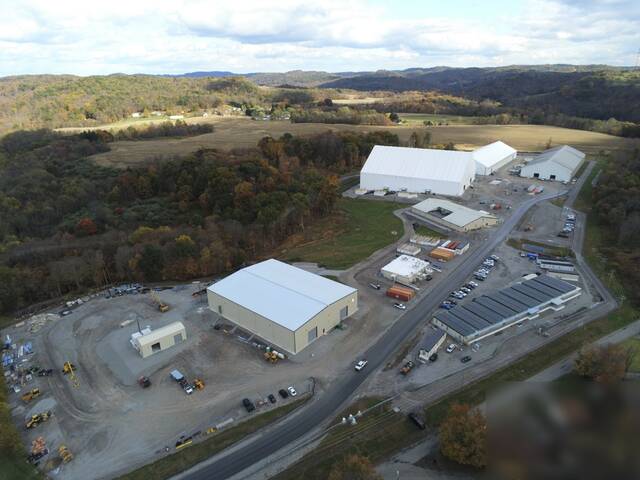U.S. Rep. Conor Lamb received a crash course in issues affecting medical supply companies and people who need equipment they provide during a meeting Monday at Tarentum-based Blackburn’s.
The 83-year-old medical supply company hosted Lamb for a roundtable discussion with company executives, University of Pittsburgh researchers and other industry professionals. The company hosted a similar event last year with U.S. Rep. Mike Doyle, D-Forest Hills.
“The people around this table have one mission, and I can honestly say that is to provide good service to people who are disabled, have anomalies they were born with, problems that we can help keep them out of skilled care and out of the hospital and therefore reduce the federal budget,” said Georgie Blackburn, vice president of government relations and legislative affairs.
The focal point of Monday’s meeting was discussing two pieces of legislation affecting the industry.
The first, known as House Resolution 2293, would protect Medicare patients’ access to mobility accessories for manual wheelchairs.
Medical supply companies compete for contracts with the Centers for Medicare and Medicaid to serve certain geographic areas. The bidding process was created to save the federal government money on products including walkers, wheelchairs, oxygen tanks, hospital beds and prosthetics.
Some economists, industry groups and suppliers have said the process cuts the numbers of suppliers and can eliminate the ability for seniors to get medical equipment they need from a local supplier such as Blackburn’s because they are required to go through whatever company received a contract, which could be out of state.
Blackburn said removing the accessories from the competitive bidding process would make it easier for patients to get what they need to thrive, which includes customized wheelchairs.
“People who need the manual chair within the complex rehab sector should not be ostracized,” she said. “Their counterparts who are getting the power equipment have their accessories paid for at the right rate so there’s no impediment to access.”
Lamb, D-Mt. Lebanon, said the legislation “sounds like something we should be able to get done.”
The other piece of legislation, known as House Resolution 2408, would establish a separate benefit category under Medicare for complex rehab technology equipment to make it easier to access.
Right now, wheelchairs are lumped in with medical devices like hospital beds, but Blackburn said they should be viewed as their own category like prosthetics are.
Blackburn said complex rehab patients make up about 10% to 14% of all the wheelchairs paid for by Medicare, but they typically have the highest need because the people who use them have conditions such as multiple sclerosis, Lou Gehrig’s disease, spinal cord injuries and stroke complications.
Mark Schmeler, a researcher with Pitt’s Department of Rehabilitation Science and Technology, has been collecting data on how such devices improve the quality of life and outcomes for patients. He said the goal for such patients is to give them as much time as possible in their home instead of hospitalization or long-term care facilities.
“If you don’t get them what they need, they’re quickly going to fast-track to a nursing home,” he said.
Lamb said Monday’s round-table discussion was valuable, particularly for him as a congressman who has been in office for about a year.
Lamb appeared to be surprised to learn about the difficultly some people with disabilities have getting the supplies they need and how difficult it can be for companies like Blackburn’s to connect with those patients.
“We have to make it better,” Lamb said. “Nobody asked for this stuff to happen to them, so why would we not go the extra mile?”



















